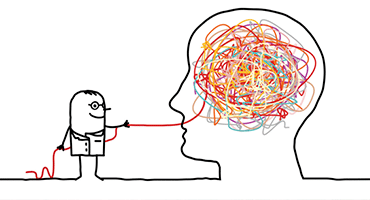By: Douglas Ozier, PhD, Registered Clinical Counsellor
First published in the Inside Tract® newsletter issue 181 – 2011
As many as 20% of Canadians suffer from irritable bowel syndrome (IBS), a chronic, often debilitating, functional gastrointestinal disorder with symptoms that include abdominal pain, bloating, and altered bowel behaviours.1 IBS can also involve numerous other colonic symptoms.
There is an increasing body of evidence showing that clinical hypnosis is an effective option for managing IBS. In this article, I will briefly explain clinical hypnosis, provide some evidence for its effectiveness, and then offer a few recommendations.
What is clinical hypnosis?
During this process, a clinician helps the client enter into a particular psychological state involving both highly-focused attention and deepened relaxation. Once in this state, the clinician teaches the client how to gain control of physiological responses and symptoms that are not usually under conscious control.2 The clinician can use a variety of techniques during this process, including progressive muscle relaxation, guided imagery, and the use of suggestive images and metaphors. It is important for the reader to understand that, in contrast to the sensationalized depictions of hypnosis that you might see in the media, the client does not lose control during clinical hypnosis. Instead, while maintaining control of his or her behaviour, the client collaboratively allows the clinician’s suggestions to alter his or her inner experience.
Evidence for the effectiveness of GDH
Almost all of the researchers who have investigated the effectiveness of hypnosis for IBS have studied a specific hypnotic intervention called gut directed hypnotherapy (GDH).2 This involves education about the digestive system, induction of a hypnotic state, and the use of individually tailored images, which specialists have designed to help normalize GI functioning.
A review article in Alimentary Pharmacology & Therapeutics analyzed the results of 18 trials that had investigated the effectiveness of GDH.1 The authors concluded that their “comprehensive systematic review provided evidence to suggest that GDH is effective in the management of IBS…”. However, these authors also advised that this area requires further research because many of the identified studies involved small sample sizes and/or weak research methodologies.
Since that review, researchers have completed a well-designed, rigorous study of hypnosis, recently published in The American Journal of Gastroenterology.3 The researchers compared the effects of 12 sessions of GDH to the effects of 12 sessions of supportive psychotherapy, randomly assigning 45 participants to each group. The study authors found that, compared to the control participants, members of the GDH group showed significantly greater positive effects on IBS symptoms, including original symptoms of loose stools, hard stools, pain, bloating, gas, urgency, and incomplete evacuation. Further, the participants maintained these improvements when researchers followed up with them after one year, suggesting that GDH therapy may have an enduring effect.











